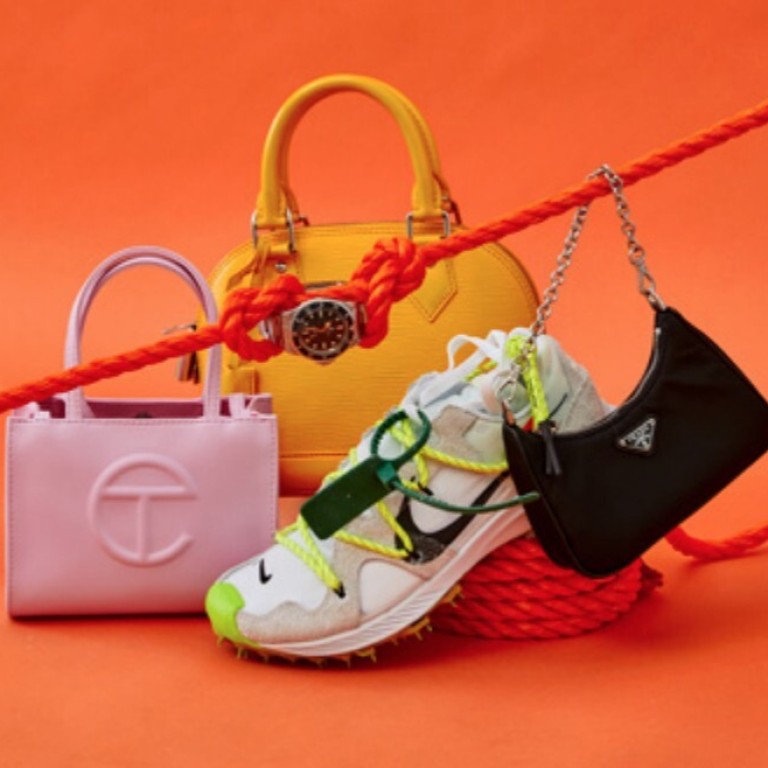
Second-hand fashion app Vestiaire Collective turns decluttering into billion-dollar business
- Gucci and Balenciaga owner Kering takes roughly 5 per cent stake in Vestiaire, which is eyeing expansion in Asia
- During the coronavirus pandemic, Vestiaire’s transaction volume grew more than 100 per cent year on year
French luxury conglomerate Kering has bought about 5 per cent of Vestiaire Collective, boosting the value of the online reseller of Chanel jackets and Prada handbags to more than US$1 billion.
Attracting one of the biggest names in fashion as a backer is a feather in Vestiaire’s cap. Kering brands such as Gucci, Saint Laurent, Bottega Veneta and Balenciaga design products to last more than a lifetime and retain considerable value.
“Pre-owned luxury is now a real and deeply rooted trend, especially among younger customers,” François-Henri Pinault, Kering’s chairman and chief executive, said in a statement announcing the acquisition.

Other Kering houses may also collaborate with Vestiaire going forward, Grégory Boutté, Kering’s chief client and digital officer, said in an interview. “We’re very excited about this partnership and look forward to seeing the impact, in terms of the experience for our clients,” he said.
The philosophy of durable and sustainable clothing rejects overconsumption, where consumers buy, wear once and discard trendy clothing. Fast-fashion companies mass-produce the latest catwalk looks and use synthetic materials to build profitable businesses, at the cost of the environment.
“In many ways, second-hand is an homage to luxury because it shows that the products being sold are not consumables but assets,” Maximilian Bittner, Vestiaire’s CEO, said during an interview with the Post. “They have a real value that lives on way beyond the initial purchase.”
About 70 per cent of owners take more care of their collections because there is a liquid second-hand market, according to research by Boston Consulting Group (BCG) and Vestiaire. Makeover influencers such as London-based Trinny Woodall are touting Vestiaire as a way to shop in a more environmentally-friendly fashion. The firm plans to be carbon neutral by 2026.
Kering grew out of the retail group Pinault-Printemps-Redoute. Its investment is part of the second-hand fashion app’s €178 million (US$214.4 million) Series H financing round, which also attracted US investment firm Tiger Global Management.
During the coronavirus pandemic last year, Vestiaire’s transaction volume grew more than 100 per cent year on year, and its membership climbed 90 per cent year on year to 11 million. Its average basket size is around €300 (US$361).
While working from home, more people had time to go through their wardrobes and the pandemic’s financial impact on households meant more people were willing to monetise their possessions, said Bittner. However, the pandemic also served to raise awareness of global warming and sustainability, particularly among young adults, he added.
“The resale sector as a whole is experiencing rapid growth, especially among millennial and Gen Z consumers, which will come to shape the retail landscape of the future,” he said.
Second-hand pieces will account for up to 27 per cent of wardrobes in 2023, up from 21 per cent this year, with the value of the second-hand sector hitting more than US$60 billion by 2025, according to BCG.
Fanny Moizant, Vestiaire’s co-founder, moved to Hong Kong in 2017 to spearhead its growth across Asia, where retailing is engaging consumers in innovative ways such as live streaming and gamification.

The company, fashion’s newest unicorn, plans to use some of the capital it has raised to expand further in Asia where, as of January, local sellers had increased their items sold by more than 250 per cent year on year.
“Many of the things that we have rolled out in Vestiaire over the last few years have been based on my experience with Lazada, and more importantly, learning directly from Alibaba,” said Bittner, who founded Southeast Asian app Lazada. Singapore-based Lazada is now owned by Chinese e-commerce giant Alibaba Group Holding, which also owns the Post.
Asia has become the fastest-growing region for Vestiaire as the concept of reselling gains ground. The company has gained traction in Hong Kong, Singapore and Australia, and is getting ready to expand into other markets in the region.
“It feels like it’s still only the early days of second-hand in Asia,” said Boutté, adding that the company’s partners could bring to bear their experience in Europe, where the resale market is more mature.
Given the value of products on its app, where a Louis Vuitton bag is advertised at HK$31,753 (US$4,093), the firm employs a team of 80 authenticators and quality controllers.
The fundraising proceeds will also be used to develop artificial intelligence and to leverage data to make profile and product recommendations based on users’ behaviour, a pricing algorithm that gives real-time feedback to sellers and a digital wallet function to incentivise sellers to reinvest in pre-owned clothes. The business will more than double the size of its technology team, generating 155 new positions.
Goldman Sachs served as strategic adviser and private placement agent to Vestiaire.

